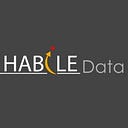How Data Validation Can Be Used to Improve Data Quality
Discover how data validation improves data quality for B2B data-selling companies, ensuring accurate, comprehensive, and up-to-date information for their clients.
Data quality is of paramount importance for B2B data-selling companies, as it directly impacts their sales and marketing efforts. High-quality data enables businesses to better understand their prospects, design personalized sales strategies, and boost conversion rates. This article introduces the concept of data validation and its role in enhancing data quality, along with the benefits of accurate and reliable data for B2B businesses.
The fundamentals of B2B data validation
Data validation is the process of ensuring the accuracy and quality of data by checking it against defined rules and constraints. It is an essential component of a broader data management strategy, which aims to maintain data integrity and reliability. Real-time validation is particularly significant, as it helps maintain up-to-date data and reduces the risk of errors and inconsistencies.
Which are common B2B data quality challenges
B2B data-selling companies often face several data quality challenges, such as duplicate data, inaccurate data, ambiguous data, hidden data, inconsistent data, and outdated information. These issues can lead to lower revenue, higher operational costs, and financial losses. Poor data quality can also negatively impact business operations and decision-making.
How to implement effective data validation practices
- Define Validation Rules — Establish clear validation rules for different data types, tailoring them to align with industry standards and business requirements. Document these rules consistently using a standard format and terminology.
- Automate Validation Processes — Automate data validation processes to reduce manual errors and increase efficiency. Utilize software tools and scripts for automated validation.
- Real-time Validation Integration — Integrate real-time validation into data entry processes to maintain up-to-date and accurate data. Examples of APIs and services that offer instant data validation include email validation services and address verification tools.
- Periodic Data Audits — Conduct regular data audits to identify inconsistencies and inaccuracies. Implement best practices for comprehensive data audits, such as monitoring data quality metrics like completeness, accuracy, timeliness, and consistency.
- Collaboration with Data Providers — Collaborate with data providers to enhance data accuracy. Develop strategies for effective communication and feedback loops to ensure that both parties are working towards maintaining high-quality data.
Measuring the Impact of Data Validation — Quantify the benefits of data validation on data quality improvement by tracking metrics such as reduced error rates, improved decision-making, and enhanced customer satisfaction. Regularly monitor and update data validation processes to maintain data quality.
Types of Data validation to Improve B2B data quality
- Syntax Validation — Syntax validation checks for correct data format and structure, ensuring that the data entered conforms to specific syntax or structure requirements. Examples of syntax validation techniques include validating email, phone number, and address formats.
- Integrity Validation — Integrity validation maintains consistency and relationships within datasets by cross-referencing data points for accuracy. This process helps ensure that the data is logically consistent and adheres to predefined rules and constraints.
- Completeness Validation — Completeness validation ensures that all necessary data fields are populated. Techniques for achieving this include mandatory field checks and default value assignments.
- Accuracy Validation — Accuracy validation verifies data against reliable sources to eliminate inaccuracies. Strategies for validating data accuracy include third-party data comparison and automated verification tools.
- Consistency Validation — Consistency validation ensures uniformity across datasets, maintaining data standardization. Examples of consistency checks include data type, range, constraint, and referential integrity checks.
- Timeliness Validation — Timeliness validation assesses data for currency and relevance, ensuring that it remains up-to-date and useful for decision-making. Techniques for evaluating data timeliness include timestamp validation and update frequency checks.
Data validation plays a crucial role in improving data quality for B2B data-selling companies. Find out which data validation techniques improve your b2b data, benefits of B2B data validation, tools used and much more.
